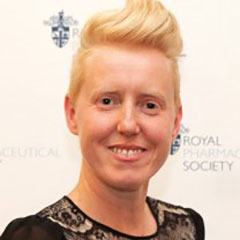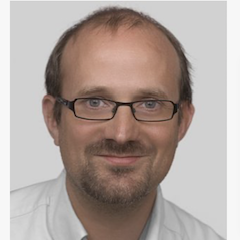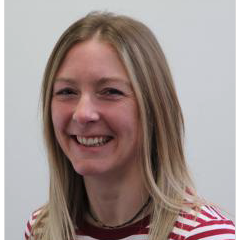Practical Aspects of Small Molecule Drug Discovery: At the Interface of Biology, Chemistry and Pharmacology
26 June–1 July 2022
Wellcome Genome Campus, UK
A broad introduction to the theoretical, practical and organisational aspects of small molecule drug discovery
Summary
Many scientists across disciplines in leading research institutions, and small and medium-sized companies are expanding from their strength into participating in early-stage drug discovery. However, this transition requires understanding and broadly participating within multiple disciplinary projects including biochemistry, medicinal and computational chemistry, pharmacokinetics, pharmacology and project management, the breadth of which can present organisational, knowledge and competence challenges for institutions and investigators.
This well received, interactive, lecture- and discussion-based course gives scientists of all disciplines a broad introduction to the theoretical, practical and organisational aspects of small molecule drug discovery. Each topic-based lecture mixes presentation with discussions and case histories to develop the key aspects highlighted in the talk and to illustrate how each participant and their discipline play a vital role in the complex journey of a drug discovery project. Additional discussion-based practical sessions build on the lectures to illustrate the strategic planning of drug discovery programmes, including the development of target product profiles, compound progression criteria and scientific strategy.
Programme
The programme will include lectures and discussions covering the following topics:
- Project management and organisation of multi-disciplinary projects
- Target selection and validation
- Hit discovery options, assay development and quality control
- Fragment based drug discovery
- Natural product based drug discovery
- Mode of action elucidation of phenotypic hits
- Screening set selection, storage and quality control
- Data mining
- Introduction to pharmacokinetics
- Principles of medicinal chemistry, compound optimisation and case histories
- In silico approaches to drug design
- Intellectual property strategy
- Data packages required for out licensing and partnering
- An introduction to preclinical and clinical development
Learning Outcomes
After attending the course, participants will be able to:
- Describe the overall drug discovery process and its relationship to the participants’ specific disciplines.
- Explain the major technical aspects of the drug discovery process, starting with target selection to compound screening to designing lead candidates
- Describe and evaluate current modern drug discovery concepts (which attempt to identify high quality drug candidates) using either a target-based or phenotypic approach to tackle the related disease
- Compare multiple drug discovery tools and methods used for finding, identifying and designing a new drug
- Identify the pre-clinical steps to gain assurance that it is safe and appropriate to initiate clinical evaluation of the candidate
- Assess and evaluate the processes, chemistry and formulation aspects which impact on early drug development
- Explain the clinical development process
- Recognise the commercial importance of intellectual property.
Instructors and speakers
Course Organisers

Paul Wyatt
University of Dundee, UK

Claire Thompson
Agility Health Tech, UK

David Gray
University of Dundee, UK

Jeremy Burrows
Medicines for Malaria Venture

Lauren Webster
Wellcome Centre for Anti-Infectives Research (WCAIR)
Guest lecturers
Each year, the course is presented by a prestigious panel of guest lecturers from industry, academia and leading not-for-profit organisations. Guest lecturers in previous years have included senior representatives with experience of working for multiple major Pharma, Biotech and Contract Research companies, including:
Pfizer
GlaxoSmithKline
AstraZeneca
Astex Pharmaceuticals
Charles River Laboratories
European Bioinformatics Institute
LifeArc
University of Dundee
EMBL-EBI
Albany Regulatory Consulting Limited
Imperial College
How to apply
How to Apply
Please complete the online application form. Places are limited and will be awarded on merit. If you have any problems with the online application process, please contact us.
Please note: Applications must be supported by a recommendation from a scientific or clinical sponsor (e.g. supervisor, line manager or head of department). A request for a supporting statement will be sent to your nominated sponsor automatically during the application process. Applicants must ensure that their sponsor provides this supporting statement by the application deadline. Applications without a supporting statement cannot be considered.
Travel visas
Successful applicants will be provided with a support letter for their visa application, if required.
Please visit the following websites for further information on visiting the UK:
Cost
| Cost | Accommodation / meals | |
| *Course fee | £820 | This is a residential course and the fee includes all accommodation and meals. |
*The course fee is subsidised by Wellcome Genome Campus Advanced Courses and Scientific Conferences and applies to non-commercial applicants. Please contact us for the commercial fee.
Bursaries
*The course fee is subsidised by the Wellcome Connecting Science Courses and Conferences team, and applies to non-commercial applicants. Please contact us for the commercial fee.
Bursaries
Limited bursaries are available (up to 50% reduction on the course fee) and are awarded on merit. If you would like to apply for a bursary, please complete the bursary section of the online application form.
Where there are many bursary applications, the selection committee may issue smaller amounts.
Bursaries can be applied for as part of the course application form. Applicants will be notified of a bursary award along with their place on the course, usually within one month of the application deadline. The decision of the selection committee is final.
Please note that both the applicant and sponsor are required to provide a justification for the bursary as part of the application.
Additional funding opportunities
Visit our support page for additional financial support currently available.
Accommodation services phishing scam – please be vigilant. More information.

